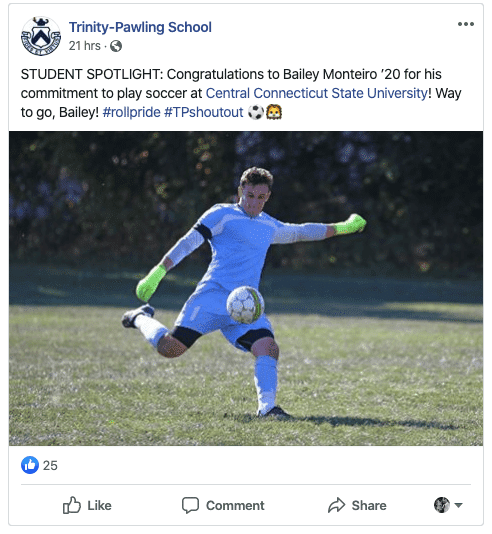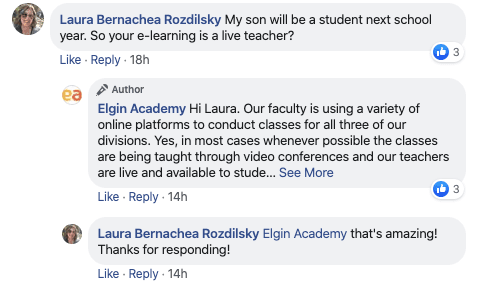COVID-19: Social media engagement is up and so is interest in learning online
- Tracking studies suggest students are increasingly open to online learning as the pandemic continues into 2020
- Students’ plans for study abroad are changing too, and more students are now planning to defer programme start dates to 2021 than was the case in February or early March
- A strong online learning offer is a key strategy for keeping deferring students engaged
- Smart and caring social media strategies are also critical for reinforcing student intent and engagement
The COVID-19 pandemic has rocked businesses and economies all over the world and derailed the study plans of millions of students. But educators, agents, and students alike are adapting, and quickly.
A rapid evolution
In the first weeks of the pandemic, there was a general sense of chaos and uncertainty across the international education landscape; neither students nor institutions knew exactly how to react to the reality that borders were changing and physical campuses closing. Every day brought another unpleasant surprise, as travel restrictions, social distancing, and border closures became more severe.
Quickly though, many educators realised that their best bet – in fact, the only option for most – was to move their programmes online, even as they naturally wondered whether (1) they could deliver a compelling study experience via screens and (2) students would be interested in learning online.
For their part, students wondered, among other things:
- Would the ROI of foreign credentials obtained either partially or totally online be lower than what they would have been if these credentials had been earned on campus in the host country?
- Was it worth it to begin a programme online with the reassurance that once COVID-19 travel restrictions eased, they could continue their programmes in-person in the host country?
- Would the online experience be good enough to justify investing in this type of education?
- Would there even be a time, in 2020, when they might be able to begin or resume studies in another country?
Nothing is normal
Suffice to say, both students and educators have experienced serious disruption as a result of the repercussions of COVID-19. But there are signs that many have moved into a new phase of adjustment to the changed world we now find ourselves in.
For example, a March 2020 QS survey among prospective international students found that 61% showed interest in studying online due to the effects of COVID-19, versus 39% who said they would not be interested in online learning. That’s a large majority of students now expressing an openness to online learning delivered by schools and universities that were once associated mainly with on-campus instruction.
There are many qualifiers that could be attached to this observation. Student expectations around quality of instruction online will continue to rise this year as we all continue to adjust to this new normal. And student perceptions of pricing for online programmes will continue to move as well, including the growing expectation for (partial or full) refunds for forgone on-campus instruction and of relatively lower fees for online programmes.
A bridge to campus
At the same time, through ongoing tracking of opinions and behaviours around study abroad during coronavirus, QS has also found that the percentage of students who intend to defer their studies because of COVID-19 has been increasing.
For example, in February 2020, 27% of respondents said their study plans had been impacted by the pandemic, and of these students, 35% said that as a result they would defer their studies to the following year. By mid-March, the proportion of students saying their study plans had changed rose to 35% and the percentage of those students saying they would defer increased to 54%.
With such a large – and increasing – proportion of students choosing to defer their start dates, offering a foundational course or suite of online courses that students can then use as credits toward completing programmes seems an ever-more useful strategy. Whether for secondary studies, language training, or post-secondary education, the option to start online and finish on campus is going to be the most important pathway for many students this year.
We are already seeing some early recognition of this in immigration policy as well. In Canada, for example, educators are now able to offer students planning to begin studies in May or June the ability to complete up to 50% of their programmes online. The idea here is that students can travel to Canada for the rest of their programme once it is safe to do so.
Boost recruitment on social
QS says its survey results indicate “that online learning will increasingly become a crucial component of higher education moving forward.” At the same time, they note, “experts predict that the traditional campus learning environment will return to full strength once the global health emergency has abated.” One implication? Schools and universities that reassure prospects and current students now – via online channels, learning platforms, and communications – will be in a better recruiting position going forward.
If your institution can’t fully move instruction online – and there are many that simply can’t – there is still an amazing opportunity to keep connecting with students through the crisis. For example:
- Virtual campus tours;
- Social media posts that invoke the student experience, celebrate student success, and reassure incoming students;
- Contests (e.g., students post Instagram photos of them studying at home during COVID-19 for a chance to win school swag);
- Communications oriented to students’ particular interests (e.g., recipes, contests, and how-to videos, if students are in culinary school; top design trends if students are in this field).

Engagement is up
This Atlantic article underlines the degree to which photo culture (e.g., Instagram) during COVID-19 is helping people to alleviate loneliness, and as you might imagine, student who had expected to study abroad and make new friends before the pandemic might well be feeling lonely and disconnected right now.
On a related note, social media engagement rates are currently at an all-time high for 2020, even though many businesses are publishing fewer posts. According to Rival IQ, the first reason for this is that because of the way that Facebook, Instagram, and Twitter algorithms work, “when a company posts less frequently, each post they create has a better chance of earning impressions and engagement, which in turn yields higher per-post performance.”
The second reason is about quality of posts:
“When marketers focus their energy on a few great posts instead of many mediocre ones, fans and followers naturally engage more. This natural engagement increase encourages social channels to re-serve that content to other users, leading to higher engagement. As we’re all trying to figure out exactly what and how to market during this time of stress and uncertainty, marketers are putting more thought and authenticity into everything they post on social, which Facebook, Instagram, and Twitter are rewarding.”
As Instagram expert Jenna Kutcher said, “this is not the season to be quiet, this is the season to communicate.” Social media expert advisor Steph Gilbert includes this caveat, however:
“Brands and social media managers have the unique challenge of embracing an unsettling time – becoming as human as possible on their social media channels – while juggling the necessary bit of marketing and selling needed to stay in business.”
Nothing is normal right now, and successful communications have to reflect this fact. Tone is all-important, as is a reassuring emphasis on responding quickly and helpfully to any questions. Here is a final screenshot showing just how effective that commitment can be:

For additional background, please see:
















